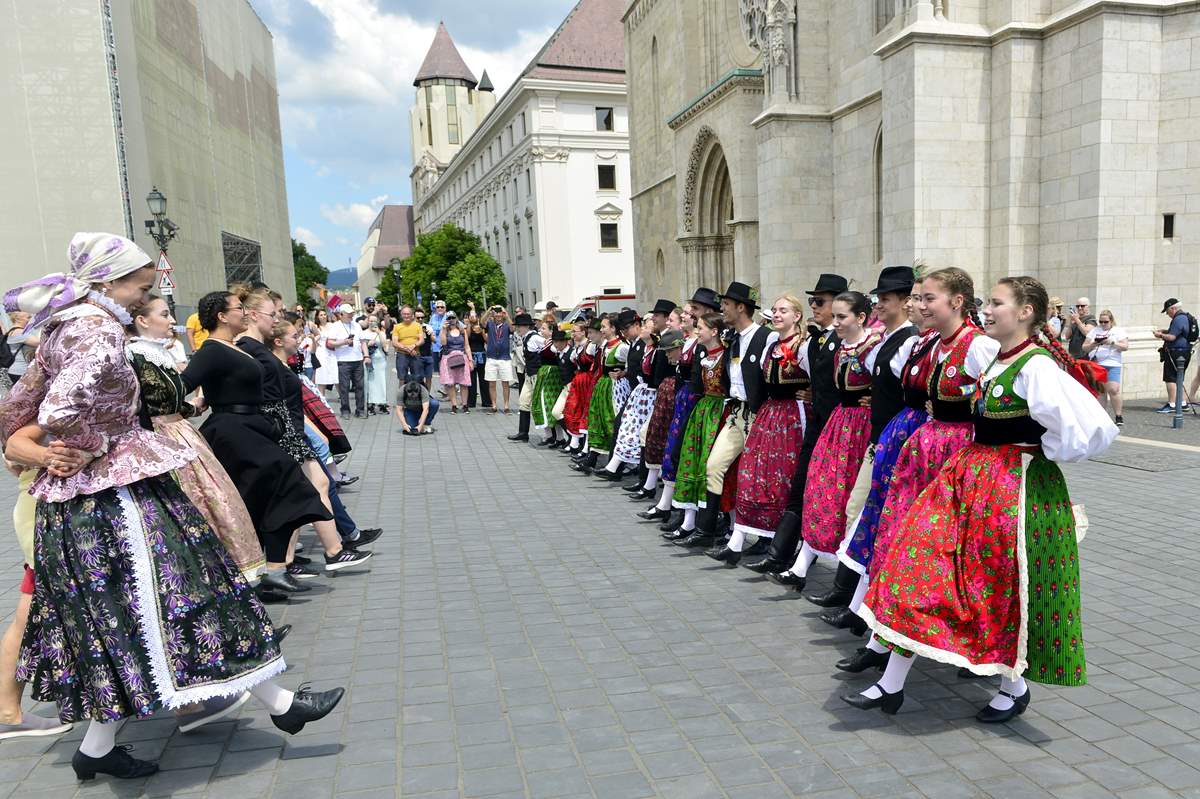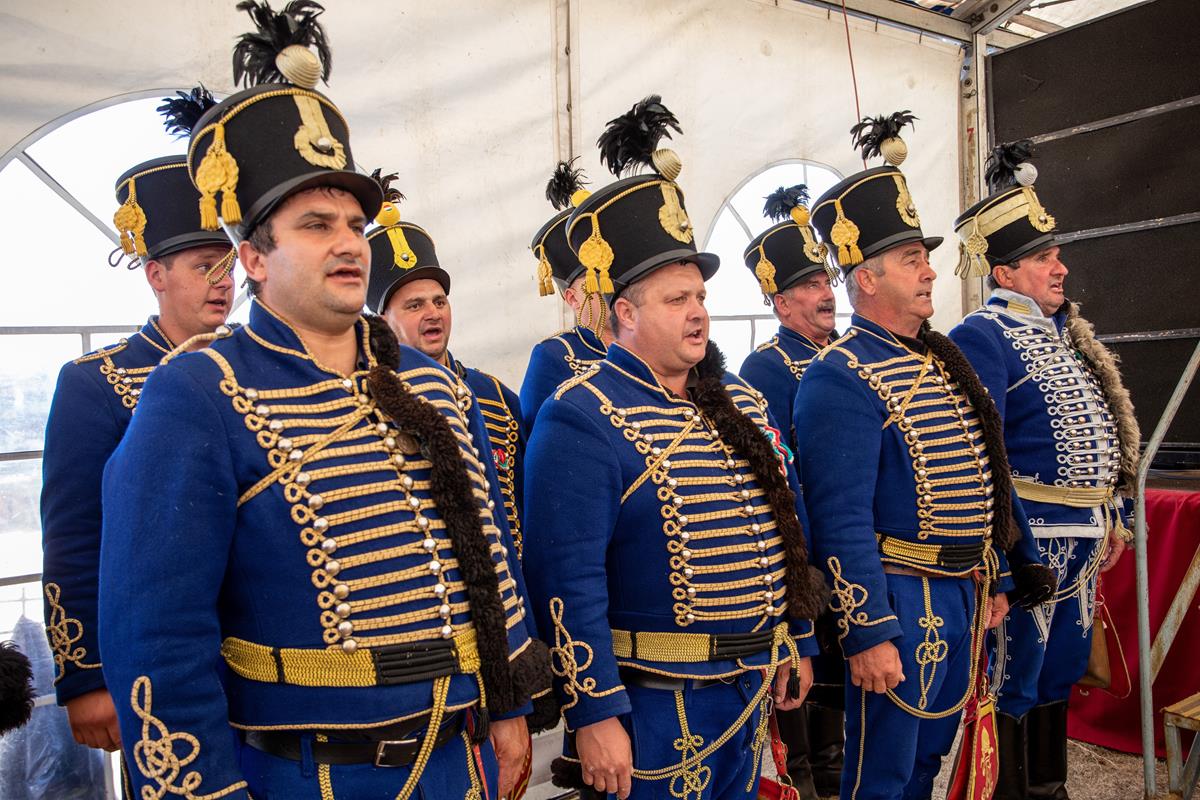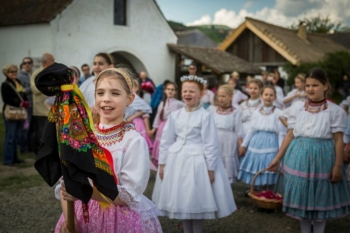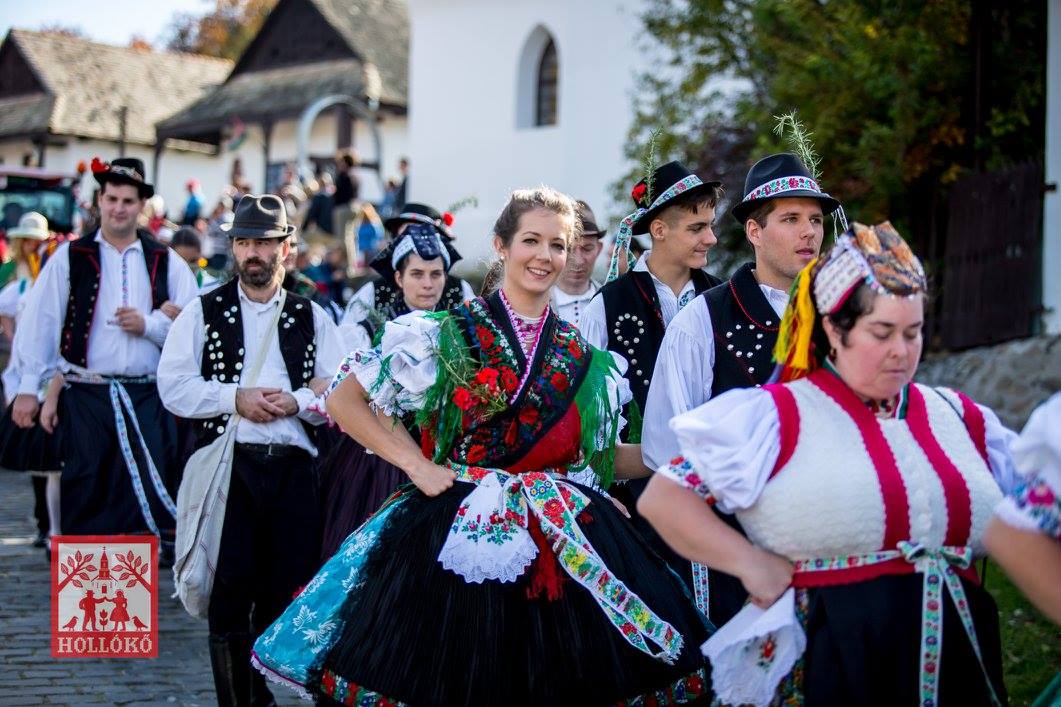Hungarian words that are also used in English
Although it is hard to imagine that a small language like Hungarian can have an influence on English, there are some cases when it is true. Take a look at the list of Hungarian words that are also used in English!
Hungarian food
Probably the most common Hungarian word in English is goulash. This popular food is not only beloved in Hungary, but also among foreigners. Goulash (Hungarian: gulyás) is a soup or stew of meat, noodles and vegetables (especially potato), seasoned with paprika and other spices. The name originates from the Hungarian “gulyás” [ˈɡujaːʃ]. The word “gulya” means “herd of cattle” and “gulyás” means “herdsman”.
According to hungarianpod101.com, halászlé (fisherman’s soup) is another Hungarian word also used in English. The recipes of fisherman’s soup can differ. While in the Tisza region, fish are not sieved but simply stewed with onion and the soup is made strictly from carp, in Baja, first a broth is made from onion, paprika and fish offal, then it is sieved, and the fish steaks cut earlier are prepared in it.

Read alsoPopular Hungarian beach foods – RECIPES
Czardas, the Hungarian folk dance
Czardas (or csárdás) is a traditional Hungarian folk dance. In this type of dance, the dancers start slowly and finish with a rapid whirl. The name comes from the word csárda, which means pub. It originates from Hungary and became popular with gypsy musicians in the surrounding areas in Vojvodina, Slovenia, Croatia, Transcarpathia.

Photo: MTI
Hussars and coaches
Although the word coach sounds like a very English-like word, it comes from Hungary. Kocsi means horse-drawn wagon and sounds very similar to its English equivalent.
Hussars on the other hand cannot be found in England. These typical Hungarian light cavalry soldiers are known for their colourful and decorated uniforms. Read more about the hussars here!

Photo: MTI

Read alsoHungarian Pentecost folk traditions
Tokay, the famous Hungarian wine
Wine-lovers are probably familiar with this Hungarian expression. The famous tokay white wine is consumed all over the world an is pronounced “toe-kay”. According to winefolly.com, tokay wine was coveted by royal customers including noblemen Ferenc Rákóczi II, Peter the Great, King Louis XIV, Catherine the Great, and even Austrian composer Joseph Haydn.

Read alsoTips to improve your Hungarian spelling!
Source: hungarianpod101.com, winefolly.com
please make a donation here
Hot news
Hungarian coronation regalia in peril, immediate replacement required
PHOTOS: Chinese mini library inaugurated, China very proud on Szeged BYD plant
New information and photos emerged of the American woman who went missing in Budapest
PM Orbán: Hungary’s aims in the American-Chinese conflict in line with the Americans’
Budapest just made public transport a whole lot friendlier for dog owners and cyclists
PHOTOS: President Zelensky visits Ukrainian school in Budapest, says ceasefire not a solution





8 Comments
There is a regiment in the British Army, the King’s Royal Hussars. It was formed in the 18th century as a cavalry unit, but now part of the Royal Armoured Corps.
How about sajt, spelled as ‘shite’ meaning poo, puszi spelt pussy meaning a cat amongst other things, biro (as in the ballpoint pen) and questionably szablya as sabre, although it is more likely to be from French.
For many 1oo’ of years, french nobility LOVED to INVITE themself’s to Hungarian ROYAL COURT for feast and fine vine. Their opinion from WHOLE EU- ROPA was : Regardless WHERE they visited, NOWHERE they had such a GREAT TASTING food categories and so many courses, In Hungary they nev- ver went HUNGRY like in many other countries was even written in history, is NOT that somone just told some kind of story, is registered facts from the past centuries history, including the Hungarian “esztetika” how much hungarians do loved pretty thinks, not only then, but they do love BEAUTY not on- ly in daily thinks but also, the BEAUTY and KINDNESS of the SOUL ! Unfortunately, many Hungarians COPIED the WEST’s behavior, and thinks with newer generations are unfortunately are CHANGING :O( but NOT everybody is copying WESTERN behaviors luckily the said.
Except for food and wine, probably the most common used word that comes from Hungarian is coach, coaching, as it was mentioned in the article (kocsi).
Jet mentioned some other Hungarian words in his comment, but the meaning he presented is inaccurate. Actually: SAJT=curd , PUSZI=kiss, BIRO=ballpoint pen (the name of the inventor)
Ici pici = Itsy, pitsy in English
@Petru, my comment was a joke. Or do you not have a sense of humour?
Jet, I’m really sorry for my lack of sense of humour!
Your comment perfectly fits the article! If we work a little bit harder, we can be stad-up comedians. Can’t we?
As well as the King’s Royal Hussars, there is also a regiment in the British army known as the Queen’s Royal Hussars. A bit more research needed before sweeping statements such as ‘ Hussars cannot be found in England’.